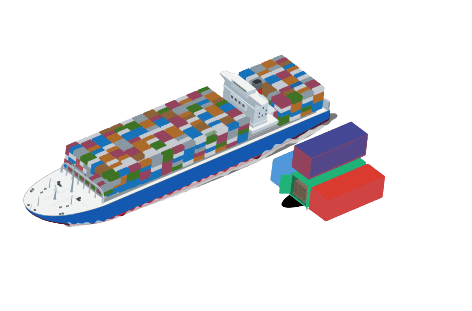In this article, we will address the topic of Compliance in Logistics as an action that keeps companies in line with the policies, standards, and rules they need to adhere to. These rules apply to many areas of a company to ensure the safety of operations by complying with the current legislation in their field of operation.
This way, the company can maintain smooth and effective operation in commercial relationships.
Read on to learn more!
What is Logistics Compliance and What Is Its Purpose?
Compliance is a term that means adherence, both to laws and a company’s internal standards.
Regarding Logistics Compliance, we can refer to specific conditions with a significant impact on the distribution and transportation of products, always focusing on the efficiency of operational processes.
Furthermore, Logistics Compliance aims to ensure detailed compliance with norms and has a preventive aspect concerning irregular practices.
Its primary functions are:
- Identification and monitoring of issues.
- Prevention to avoid adversities.
- Resolution of unforeseen events.
- Fostering a sense of unity among employees.
What is the Objective of Logistics Compliance?
The goals of Logistics Compliance are clear in ensuring corporate compliance with policies and internal and external regulations within the industry.
Moreover, it aims to ensure proper adherence to these guidelines for everyone involved. The main objective is to ensure secure logistics operations without negative impacts on partners, suppliers, and employees.
What Benefits Does Logistics Compliance Bring to Operations?
Logistics Compliance actively contributes to safety policies, reduces the risks of standard implementation, and maintains process efficiency. Its main advantages include:
Reduced Risks
At this point, Logistics Compliance closely monitors the entire operation to identify any issues that might disrupt a process and negatively impact the end result.
This way, companies can operate with more organization and proactivity, avoiding risks associated with fines and optimizing costs.
Handling of Information
The use of personal customer data is highly relevant in logistics, as it involves sensitive information requiring protection by a compliance program to prevent data breaches in line with established parameters.
Efficient Operation
With Logistics Compliance, managers gain a better understanding of operational processes, in an organized manner and following program standards to identify problems.
Consequently, the company acquires an efficient and regulatory capacity in its overall functioning.
Greater Market Confidence
Maintaining compliance with the law prevents penalties for non-compliance with industry regulations. Through Logistics Compliance, the company aligns its processes for increased competitiveness and strengthens its reputation.
This ensures market trust in the business, maintaining peace of mind for all involved.
Employee Awareness
A robust compliance program also promotes employee awareness of the importance of compliance, helping to create an organizational culture focused on ethics and fulfilling obligations to ensure operational integrity.
Tips for Implementing Logistics Compliance
Here’s how a good compliance program can help ensure the safety and regularity of logistics:
Risk Identification
Logistics Compliance defines risk as regulatory sanctions or financial loss resulting from non-compliance with laws.
If these risks are not identified in advance, they can have more significant impacts on the financial situation or the company’s reputation, with incalculable proportions.
Creation of a Code of Ethical Conduct
This is an important stage that involves employee awareness since norms and laws must be followed by everyone, contributing to strengthening corporate values, employee satisfaction, and greater engagement in the work performed.
Internal Auditing
This process consists of a set of procedures that analyze and check a company’s internal controls to prevent fraud and errors, striving for the achievement of integrity and organizational effectiveness goals.
Third-Party Monitoring
Track the data and behavior of the company’s stakeholders to detect errors that may negatively impact the company’s reputation.
The Importance of Transparency in Negotiations
The implementation of transparent management is beneficial to all parties involved, as employees have greater trust in managers, increasing task engagement.
Furthermore, this results in reduced costs and increased team productivity, strengthening interpersonal relationships and improving the organizational climate.
Reasons to Maintain Transparency in the Company
As a fundamental element to improve healthy and lasting relationships, through the guidelines of Logistics Compliance, transparency is essential due to several reasons:
- Built trust.
- Reduced risks.
- Improved communication.
- Continuous innovation and improvement.
How Does the Technology of the Cheap2ship Platform Help with Logistics Compliance Practices?
In this article, we’ve seen that Logistics Compliance streamlines company processes, organizing ethical and moral corporate conduct, and ensuring compliance with all current norms and laws in the sector in which they operate.
This way, errors, fraud, and rework are avoided, as well as overspending on punitive fines due to the lack of monitoring in logistics processes.
The international freight quotation platform from Cheap2ship will help your company improve its logistics efficiency, with faster processes by allowing you to view all your freight providers. This way, you can choose the best option in a single quote, receiving multiple responses within hours. Over 97% of negotiations are conducted according to compliance guidelines in your industry.

